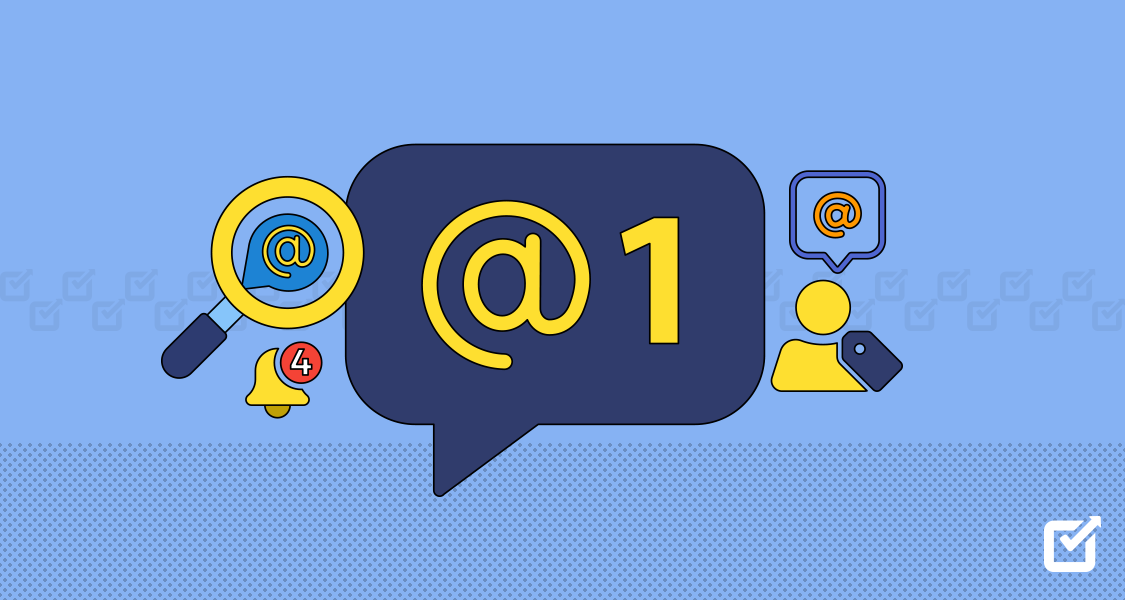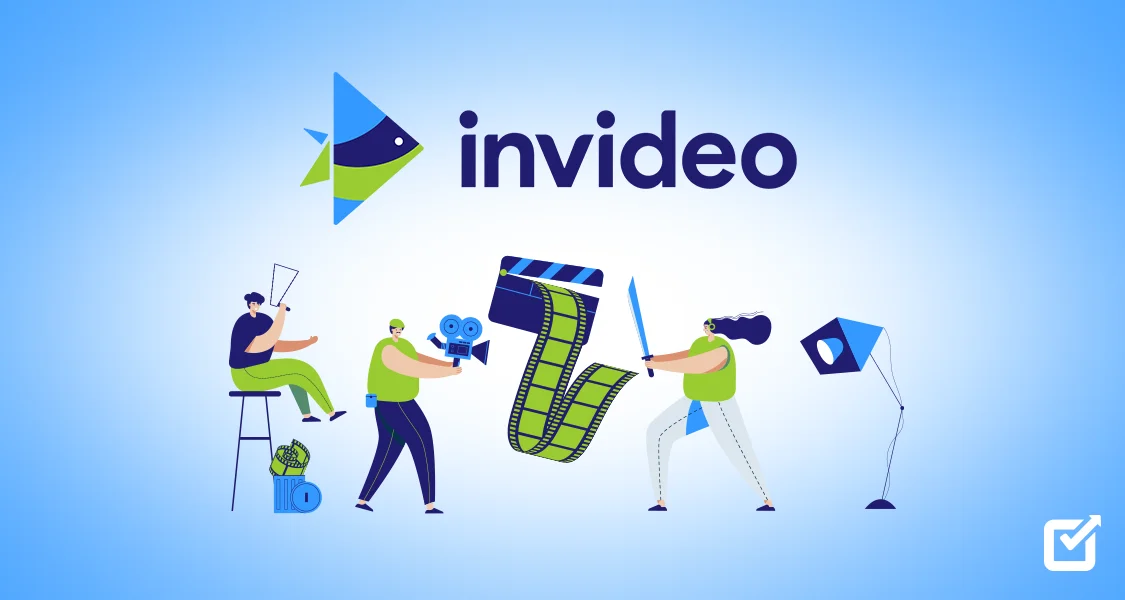Ever wonder what people are saying about you online? Social media mentions are like whispers on social media, offering insights into brand perception, industry trends, and competitor activity.
In 2024, staying attuned to social mentions is crucial. Just like keeping your ear to the ground in the real world, it reveals public sentiment, identifies hot topics, and helps you understand your competitive landscape.
Remember, over 90% of consumers trust recommendations from friends more than advertisements, making authentic social media mentions a source of real-world feedback.
This blog will discuss why social mentions are key in 2024 and how to track them. But before we get started, here’s a little tip: If you want to respond to comments on all social platforms conveniently, try Social Champ. The tool comes with a unified inbox that helps you cater to all customer queries instantly!
What Are Social Mentions?
On social media, any post referencing your brand, whether through a direct @mention or simply mentioning your name, is a social mention. These mentions can be positive (praise, recommendations), negative (complaints, criticisms), or neutral (informational).
By listening to both tagged and untagged mentions, you gain insights into how your brand is perceived and discussed. This allows you to respond effectively, address concerns, and identify trends to enhance your brand reputation and messaging. Social mentions provide heaps of information, offering feedback and opportunities to connect with your audience and solidify your online presence.
Conquer Your Inbox With Social Champ
Respond to every message, comment, and review from one central hub. Leverage Social Champ’s unified inbox for effortless social media management.
What Are Social Mentions Examples?
Social mentions are examples of online interactions that provide insights into how people perceive and engage with a brand on social media. These mentions include direct tagging, brand references, and sharing user-generated content.
For instance, when a happy customer shares their positive experience with a brand on Twitter or when a Facebook post talks about a product launch without directly tagging the brand, these are examples of social mentions.
In another example from Instagram, take a look at how this MUA has mentioned famous cosmetics brand Rare Beauty in her post:

Why Are Social Mentions Important?
So, your brand is getting attention online. But why should you care about what people are saying?
Well, paying attention to social mentions helps you understand all the different conversations about your brand. Here’s why it’s important:
Social Proof
Social mentions are like online reviews. Keeping track of them lets you highlight good feedback and collect user-generated content that shows how great your brand is. Since 75% of people use social media to learn about brands, this is your chance to prove your brand is worth it. And if your reviews are negative, social mentions can help you identify them and provide conflict resolution as soon as possible.
Social Customer Service
More and more customers are asking for help on social media, so it’s essential to be there for them. Whenever someone mentions your brand to ask for help, it’s a chance to show you care. By quickly responding to questions or complaints, you help that customer, thus proving that you’re a customer-centric company.
Crisis Control
Social mentions can warn you about problems before they get worse. Whether it’s a big issue or something small, keeping an eye on social mentions helps you deal with problems early on.
Understanding Your Audience
Social mentions give you helpful information about who’s talking about your brand and what they’re saying. By knowing more about your audience, you can make better content, products, and services.
Humanizing Your Brand
Talking to people who mention your brand lets you showcase its personality. Sharing your values and chatting with your followers make your brand feel more natural. This helps you connect with your audience and build strong relationships with them over time.
Related Article: 15+ Powerful Social Media Marketing Tips for Businesses in 2025
How Track Social Mentions
Now that you understand why tracking social media mentions is essential let’s explore some simple ways to do it.
Search Social Mentions Manually
Most social media platforms offer notification settings to alert you when someone mentions your brand. To find these mentions manually, you must log in to each social media account and check your notifications or alerts.
The process may vary slightly for each platform, but generally, you’ll need to click on the Notifications icon and then navigate to a Mentions tab. For example, on X, you can follow these steps:
- Log in to your X profile.
- Click on the bell icon in the left menu.
- Select “Mentions” from the top menu.
Use a Social Listening Tool
There are several social listening tools that can help you track your brand’s mentions on specific social media platforms. All you have to do is subscribe to the tool and leverage its social listening feature. Once you identify the mention, you can resolve it accordingly.
Make a Branded Hashtag
Essentially, tracking mentions becomes simpler if you know what to search for. A simple but effective way to track mentions of your brand is to create a unique hashtag and encourage customers to use it in their social posts. This makes searching for a social mentions list easy and helps gather user content to share on your feeds. Ensure your branded hashtag is easy to find on your social media profiles, website, and any physical marketing materials to encourage people to use it.
Use the Platform’s Search Features
Each social media platform has a search feature that lets you easily find mentions of your brand. Just type your brand name into the search bar, and you can filter results to find posts where your brand is mentioned, even if it’s not directly tagged. Platforms like Facebook, Twitter, and LinkedIn have good search options that let you set filters and refine your social mention search results.
Related Article: Stay True to Your Brand: Conveying Values via Marketing
Tips for Responding to Your Social Mentions
Responding to a social mentions list is a critical aspect of managing your brand’s online presence effectively. Here are seven best practices to consider:
Address Every Mention
When someone mentions your brand on social media, it’s more than just a casual remark—it’s a valuable opportunity for engagement. Research conducted by Salesforce highlights that 64% of consumers expect brands to engage with them in real-time. Whether the mention includes a direct tag or not, responding promptly demonstrates attentiveness and a commitment to customer interaction.
By acknowledging every mention, you not only show appreciation for your audience’s engagement but also reinforce a positive brand image by being responsive and attentive. Remember, even a simple acknowledgment can go a long way in fostering meaningful connections with your audience.
In relevance to our above-presented example, now take a look at how Rare Beauty responds to its social mentions:

A snapshot of Instagram Share What You Learn
Listening to what people say about your brand on social media isn’t just about tracking comments. It’s a chance to gather important insights that can help all departments in your company. You can better understand your customers and what they like by paying attention to social media conversations.
For example, if there’s a lot of positive talk about a recent marketing campaign, share the content with your marketing team. They can use it to see what’s working well and plan future campaigns. Similarly, if customers are discussing problems with your product, let your product team know. They can address these issues and make improvements to meet customer needs.
Sharing these insights with different teams encourages collaboration and ensures everyone knows customer feedback and market trends. By using social media mentions as a valuable source of information, your company can make better decisions, improve products and services, and build a stronger brand reputation.
Thank the User for Reaching Out
It’s important to show appreciation when users interact with your brand on social media, whether by sharing positive feedback, asking questions, or expressing concerns. Thanking someone who praises your brand acknowledges their support and encourages them to continue promoting it to others.
Similarly, when users reach out with inquiries or complaints, it’s a chance to demonstrate your dedication to customer satisfaction. By responding promptly and courteously, you can address their issues, resolve problems, and potentially regain the trust of dissatisfied customers. Thanking users for sharing their concerns highlights your brand’s responsiveness and openness to feedback.
When expressing gratitude, sincerity is crucial. Your thanks should be genuine and heartfelt, showing that you genuinely appreciate their engagement. While you may not need to thank someone for negative comments, acknowledging their input demonstrates professionalism and a customer-focused approach to addressing feedback.
Amplify the Positivity
Sharing positive mentions is a great way to boost your brand’s reputation. It’s also an opportunity to highlight different aspects of your business that you might only sometimes focus on.
For example, imagine you run a local coffee shop known for its specialty brews. While your social media mentions usually showcase your coffee blends and cozy ambiance, a customer recently left a glowing review about your friendly staff and exceptional customer service. By sharing this mention, you appreciate the feedback and shine a light on another key aspect of your business. It’s an easy way to spread positivity and show appreciation for your customers’ kind words!
Stay Positive and Provide Solutions
When dealing with feedback, whether positive or negative, keep a positive mindset. Rather than seeing less-than-glowing comments as criticism, view them as valuable feedback that can help you better understand your audience.
Approach every mention with a positive attitude, even if it’s conveying negative sentiments. Focus on offering solutions to improve the user’s experience in the future.
Be accountable for your actions. Avoid deleting messages or hiding conversations, as this can create a negative perception. Users notice when their comments are removed, which can lead to further issues. Instead, redirect the conversation positively and address concerns openly.
However, you must know when to disengage. If attempts to steer the conversation positively aren’t working, it might be best to step back. Avoid engaging with trolls, as it can escalate negativity. Eventually, they’ll lose interest and move on, allowing for more productive interactions.
Stay True to Your Brand’s Voice and Tone
The team member(s) responsible for responding to your social mentions should be well-versed in your brand’s voice and tone guidelines. They should understand the essence of your brand personality and effectively communicate it through their responses.
It’s essential for your marketing and customer service styles to be aligned, even if they’re different. Consistency in tone across all interactions helps reinforce your brand identity and builds trust with your audience. If you enjoy adding flair to your responses with GIFs or emojis, ensure they are appropriate and resonate with your audience.
When crafting responses, use clear and straightforward language that is easily understandable by everyone. Aim for simplicity so that even an eighth-grader can easily comprehend your replies.
Take Away
Consider social media as a bustling marketplace of conversations about your brand. Every social mention, good or bad, offers a glimpse into your customers’ minds. By becoming a proactive listener on social media platforms, you can not only maintain a positive brand image by addressing concerns promptly but also capitalize on the wealth of customer insights hidden within these conversations.












